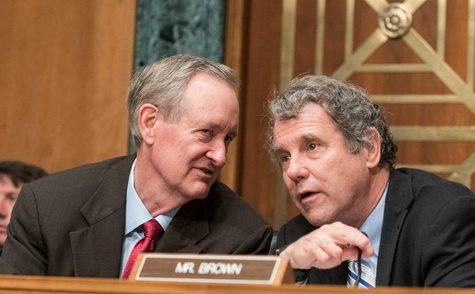
The Senate Banking, Housing, and Urban Affairs Committee on Thursday held a hearing, "Examining Bipartisan Bills to Promote Affordable Housing Access and Safety," to discuss bipartisan legislation aimed at expanding access to affordable housing generally and improving safety conditions in federally-assisted housing specifically.
The Roundtable will continue to work with our industry partners, the Administration, and Congress to implement a multifaceted strategy that addresses the nation’s housing affordability crisis.
# # #

In response to allegations that the Treasury Secretary improperly intervened in the designation of certain census tracts as Opportunity Zones, key Democratic lawmakers put forward proposals this week to enhance Opportunity Zone information reporting, reform aspects of the tax incentives, and formally investigate the reports of wrongdoing.
Since its enactment, The Real Estate Roundtable has strongly supported the Opportunity Zone tax incentives as a potential powerful catalyst for transformational real estate investment in economically struggling parts of the country. Through its Tax Policy Advisory Committee and Opportunity Zone Working Group, The Roundtable has played an active role throughout the lengthy rulemaking process, offering constructive comments and recommendations to Treasury officials. (GlobeSt.com interview with Roundtable President and CEO Jeffrey DeBoer) (Roundtable Weekly, Dec. 21, 2018)
# # #

A comprehensive legislative overhaul of the EB-5 investment program was introduced in the Senate on Tuesday – as both the program’s expiration and the effective date for new agency regulations are expected on November 21.
November 21 is also the date that the underlying legislative authorization of the program expires, as connected to the current continuing resolution (CR) that keeps the federal government running. For the past five years, Congress has consistently extended the EB-5 regional center program concurrently with spending measures that continue federal operations. The timing of the DHS rules’ effectiveness and the program’s expiration on November 21, along with S. 2778’s introduction, are expected to spur new rounds of legislative negotiation for long-term EB-5 reform in the coming weeks.
# # #